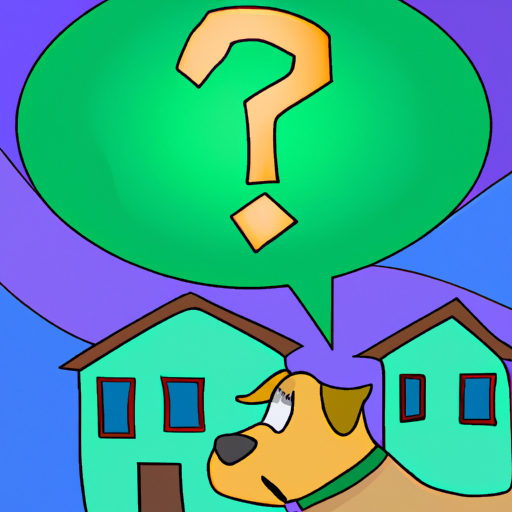1. Introduction
Have you ever found your furry friend following you around your home, from room to room, even to the bathroom? You are not alone. This behavior is common among dogs and often leaves their owners puzzled. But don’t worry, it’s typically a sign of affection and bonding.
2. Understanding the Dog Psychology
Dogs are pack animals by nature. In the wild, they stay close to their pack for survival and companionship. You, their caregiver, are now their pack leader. Here are a few reasons why your dog might be your constant shadow:
- Companionship: Dogs are social creatures and enjoy the company of their humans. They simply might be seeking your attention and companionship.
- Curiosity: Dogs are naturally curious animals. They might be following you around just to see what you’re up to!
- Protection: Dogs have a strong instinct to protect their pack. Following you around allows them to keep an eye on you and ensure you’re safe.
| Reasons | Explanation |
|---|---|
| Companionship | They enjoy your company |
| Curiosity | They want to know what you’re doing |
| Protection | They want to ensure your safety |
3. When to Be Concerned
While it’s endearing to have a furry shadow, excessive following could be a sign of anxiety or other behavioral issues. Here are some signs that you might need to consult a vet or a dog behaviorist:
- Your dog becomes visibly distressed when you’re out of sight.
- Your dog’s following behavior disrupts your daily routine.
- Your dog shows other signs of anxiety, such as excessive barking or destructive behavior.
4. How to Encourage Healthy Independence
As a caregiver, it’s important to help your dog feel secure and develop healthy independence. Here are a few tips:
- Encourage your dog to spend time alone with toys or a chew bone.
- Practice leaving your dog alone for short periods and gradually increase the time.
- Reward your dog for calm behavior when you’re apart.
5. Conclusion
Remember, it’s normal for dogs to follow their caregivers around the house. It’s part of their social nature and their bond with you. But if your dog’s behavior seems excessive or is causing distress, it might be a good idea to seek professional help.
FAQ
Q: Why does my dog follow me and not my partner?
A: Dogs often bond more closely with one person who they view as their primary caregiver.
Q: Is it bad if my dog follows me everywhere?
A: It’s not necessarily bad, but it could be a sign of anxiety if it’s excessive.
Q: How can I help my dog be more independent?
A: Gradually increasing the amount of time they spend alone and rewarding calm behavior can help.
Q: Should I ignore my dog when they follow me?
A: Not necessarily. Acknowledge their presence, but don’t reinforce the behavior by giving excessive attention.
Q: Can excessive following be a sign of a health issue?
A: Yes, it can sometimes be a sign of anxiety or other behavioral issues. If you’re concerned, consult a vet or a dog behaviorist.



